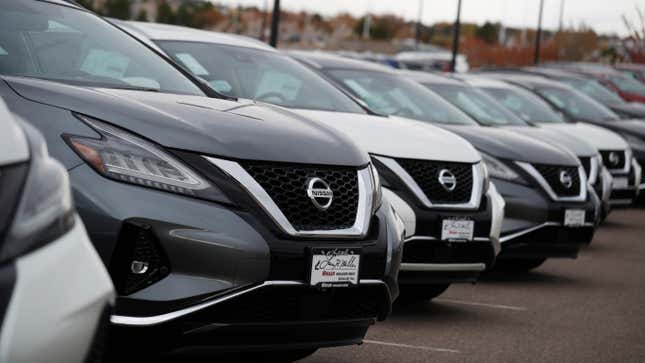
There are a lot of mistakes that buyers can make if they aren’t careful that could end up costing them, including not understanding your budget or comparing deals. But the worst mistake. according to Edmunds, often comes after a savvy shopper closes their deal.
We all know that new cars start to depreciate as soon as they are driven off the lot, and while the rates of depreciation will vary from model to model, Edmund’s car-buying expert Matt Jones (via AP) explains that trading in that new car too early can erase all the hard work you did shopping for your deal. He does so by using a fake but mathematically realistic scenario:
“To illustrate how heavy the financial penalty for making such a quick switch can be, consider this fictitious situation in which you bought a new Honda Accord LX in 2017. You spent hours getting price quotes, comparing interest rates and calculating payments. The research paid off: You were able to snag a deal for $20,643, shaving roughly $3,400 from the MSRP of $24,030. Once all taxes and fees were factored in, your “out-the-door” cost came to about $22,700. By most accounts, this amount would be considered a good deal.
But soon after the purchase, you realized you didn’t like the Accord and decided that an SUV would be a better fit for your lifestyle. You sell your Accord to the dealership just two years later for a trade-in value of $13,522. That’s a full 40% less than the original all-in cost of $22,700 you paid only 24 months earlier. In actual dollars, the Accord value dropped by $9,185.”
Jones further says that while Hondas typically hold their value better than most cars, this depreciation loss can be even more dramatic if you buy a car with a much steeper resale curve.
As a professional car shopper I’ve spoken with several car buyers who had a fairly new model and were looking to get something different, their situations were not all that different than the fictional buyer above, and more often than not these folks are under-water, meaning the value of the car is less than the remaining balance on the loan. That scenario is even more exaggerated when people try to get out of leases early.
In both cases, if a buyer wants to switch to a different car it will either require them to roll-over large amounts of negative equity into the next loan or lease and/or bring a lot of money to the table to close the gap between the payoff amount and the trade-in value. Often people in tough situations like this want an easy way out, unfortunately, the cold hard realities of math don’t allow for that.
Jones offers some tips to avoid buying a car that you may not keep for awhile including, honestly assessing your needs and budget, doing a thorough test drive to be sure the car is a good fit, and considering a used car that has already taken some depreciation to give yourself an “easier out.” However, the key point is that if you are going to purchase a car you get the maximum financial value out of it by keeping it as long as possible.